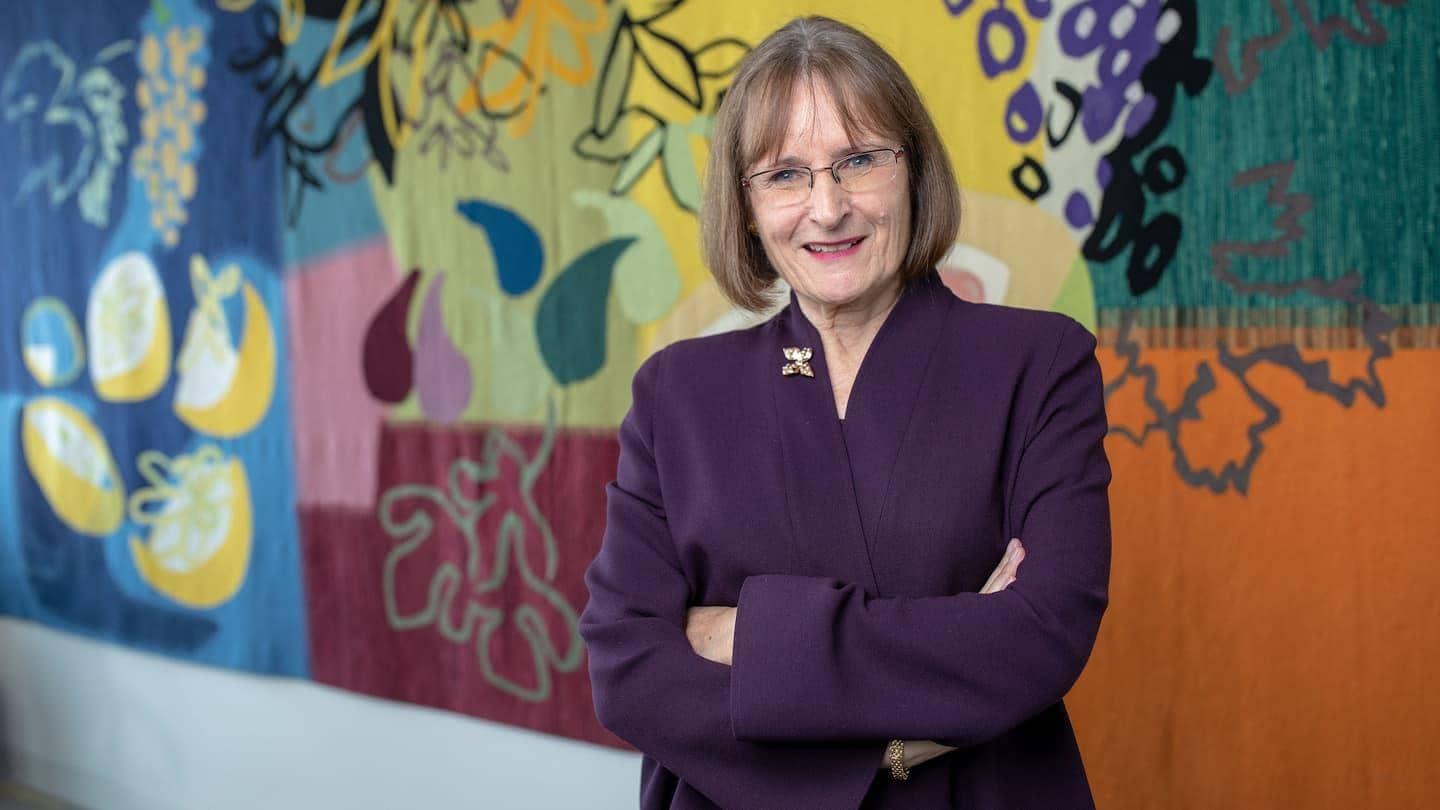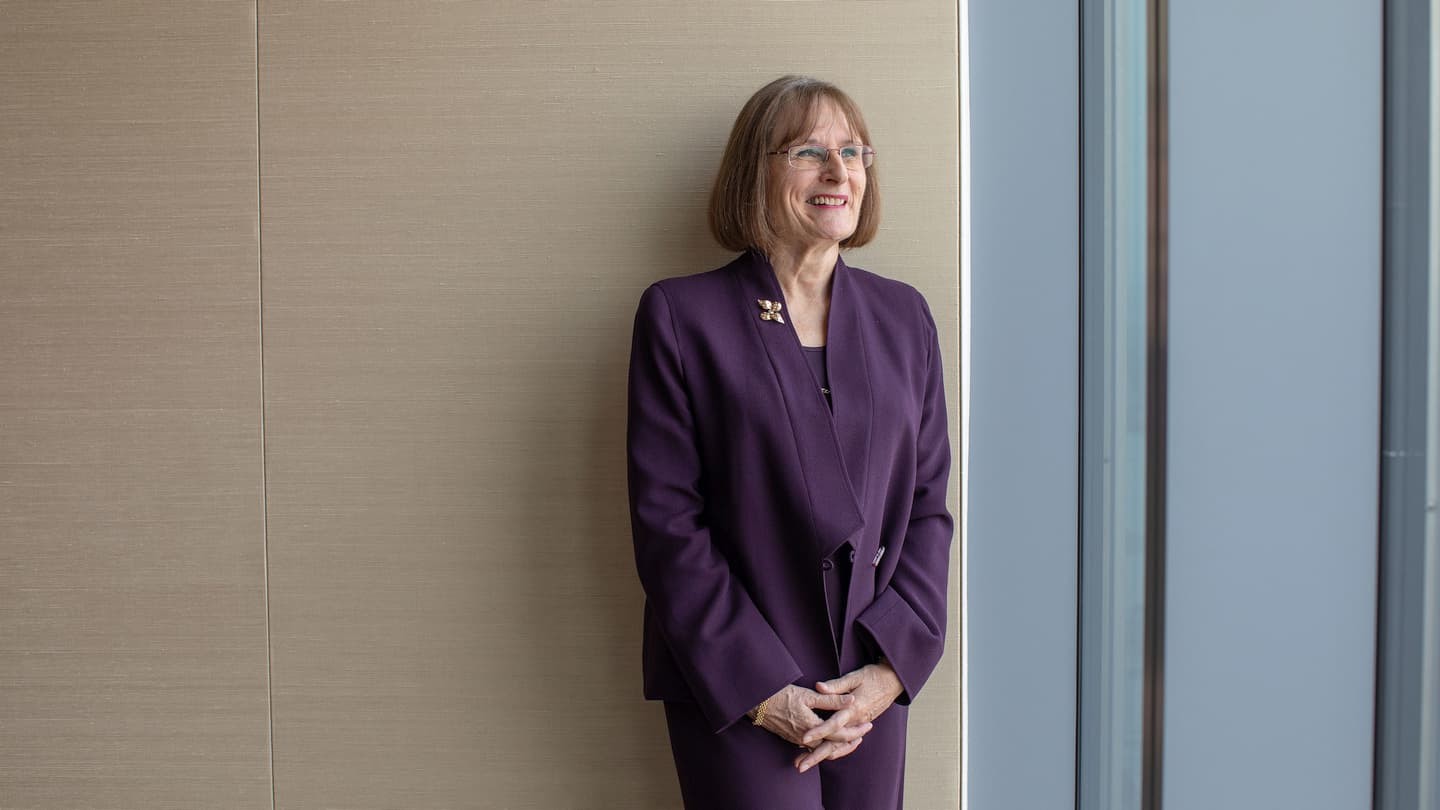
Leadership
Leading Questions: Mary Francis CBE
Mary Francis CBE is a Non-Executive Director on the board of Barclays, having previously held senior roles in the Civil Service, at Buckingham Palace and in the private sector. She shares the leadership insights she’s gained over a long career – and takes us behind the scenes at 10 Downing Street to look at crisis leadership.
What’s the best piece of career advice you’ve been given?
In my very first job – when I was going for an interview for a promotion – my then-boss said “don’t forget that the people who are interviewing you are either very bored or a bit frightened of performing well themselves as interviewers, so help them. Make it a good experience for them.”
It was a very clever piece of advice and stayed with me throughout my career: you get the best out of situations when other people are enjoying talking with you and being with you rather than being too severe or too clever or too pressing.
What lessons did you learn early on from senior Civil Service leadership?
I encountered some incredibly bright people. In the Civil Service, people divide into those who are both bright and practical, and those who have their feet several feet off the ground. I don’t think that’s limited to the Civil Service, it’s probably the same in business.
It’s always seemed to me that successful people are the ones who have the intellectual ability, but who still line up in the supermarket to buy their groceries. One of the things I’ve always told myself through my career is not to lose touch with what’s going on in wider life – seeing what people are doing and buying and talking about.
Is there a leader who you particularly admire?
Helen Alexander, who died in 2017, was somebody who made a stand about bringing more women onto boards. She then led a lot of work calling for more women to be promoted into the executive stream, because if you’re just looking at boards you’re not looking at what matters. Helen was clear and decisive but always friendly and easy to talk to.
Another person I’d mention – and this is not meant to be crawling – is Jes Staley. I think Jes has done a fantastic leadership job at Barclays, bringing a team together and being very clear about his own personality, intentions and strategic drive. I joined the board just as Jes had started, and the whole organisation was not a terribly happy place. Within nine months it was – it had been transformed, and that’s what leadership is about.
What leadership advice would you give to people building towards leadership positions?
You need to build up experience and knowledge, and it is important to be decisive. For me, that’s what leadership is about – drawing on experience gained over many years and being ready when the time comes to make the calls.
How would you encourage more women into leadership positions in business?
I’ve come to the conclusion that there’s no magic bullet – instead we have to push on all sorts of levers to, for example, help women come back after they’ve had children. It’s about the culture in companies, and recruitment and promotion. It’s also something to do with our society. We haven’t built up that infrastructure of childcare where it’s assumed that women will continue working.
How does public sector and private sector leadership differ?
The thing that attracted me most to the private sector was the ability to lead and to be myself. I was headhunted from being the Queen’s Deputy Private Secretary to be Director General of the Association of British Insurers, and suddenly instead of being the person behind the Minister or the Prime Minister or the Queen, I was in the forefront of the organisation.
I was the leader and I had to make difficult decisions, replace a lot of people and speak for the insurance industry at a time when it was under a lot of criticism, but I loved it because I knew what I was doing and I was ready to be the front person.

When moving organisations in a senior position, are there any tactics to integrate and lead?
When I’ve moved jobs or organisations, I’ve always found that you have to initially talk to people, and go through a period of intensive learning. I’ve noticed that our new Chairman at Barclays, Nigel Higgins, is doing exactly that. He’s taking a long time talking to people before he takes up the job.
If you try to leap in with your own ideas and actions too quickly, it’s fatal. But if you hold off too long it’s fatal as well. So, you have an intensive period of talking and learning, but then you need to make your big decisions.
How do you unwind?
I love being outside in the country. My husband is Canadian and we have a home in a very wild part of Canada, and my ideal is being there going for long walks or cycle rides.
Describe your perfect day?
A day where there’s no plan and no requirement to wear smart office clothes.
How important is the work/life balance?
I work very hard, but I’ve always believed in taking holidays. I think for me, often the work/life balance doesn’t happen every day, but it’s about taking breaks. Because my husband is retired, when I see him looking fed up with me saying “I have to read some more board papers”, that’s a pretty good signal.
Can you recommend a book?
My fellow board-member Dambisa Moyo and I always enjoy exchanging recommendations for business books. She recommended to me a book called Bad Blood by John Carreyrou, about the Theranos scandal. My own recommendation is Shoe Dog by Phil Knight, the founder of Nike – a great account of building a business.
If [John Major] got one-to-one in a room with someone, he’d mastered the material, he had the charm, and he knew what he wanted. I’ve seen him pull government ministers from the end of a branch when they wanted to resign